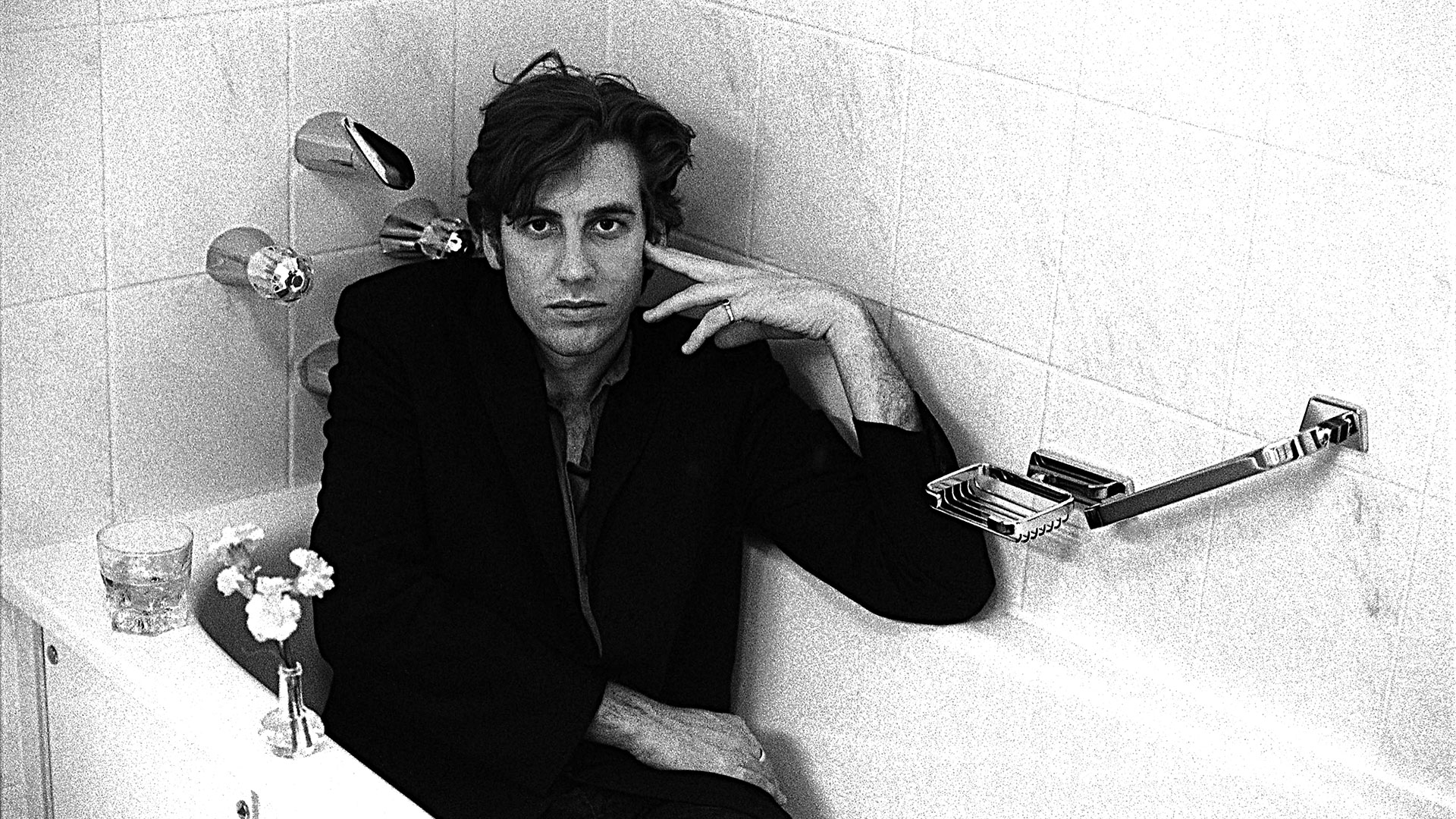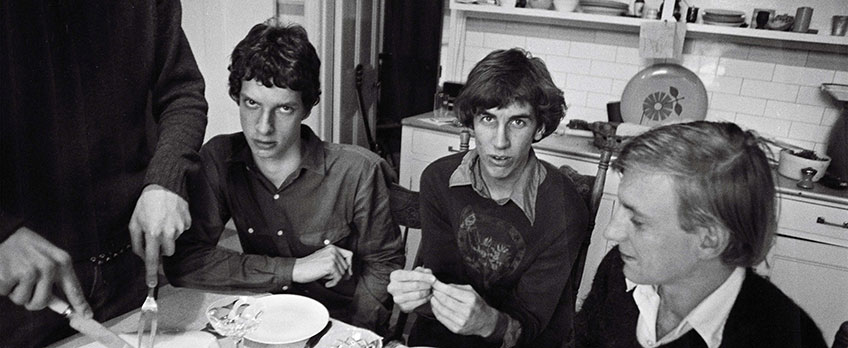Love in Bright Landscapes – Q&A with Jonathan Alley

Chronicling the triumphs and ultimate tragedy of a visionary artist and an adored ensemble, Love in Bright Landscapes recounts the life of David McComb, virtuosic frontman of Australian rock band The Triffids. Jonathan Alley’s expansive MIFF Premiere Fund–supported film brings together interviews with the likes of music luminary Paul Kelly, Triple J’s Richard Kingsmill and the late scholar Niall Lucy, as well as never-before-seen family footage and snippets of newly-discovered writing by McComb.
It’s been 20 years since David McComb’s death. What was it like for you, as someone who is so immersed in the material, interviewing those he was closest to and reminiscing through David’s music and words?
Jonathan Alley: Not to be difficult, but we didn’t do a lot of ‘reminiscing’ per se, which sounds a bit nostalgic. My overall impression of interviewing those closest to David was that speaking about him made him very present again, and that made a lot of the interviewees quite emotional. It seemed that some quite subconscious or long-buried memories rose to the surface quite swiftly at times – in ways they were perhaps not expecting. I guess it’s the mark of someone who’s simply made an indelible impression on people.
While one expects speaking about someone close dying young to be understandably upsetting, the tragic element felt accentuated by the loss of the mind as well as the person. Many had this innate sense of frustration: we’d never again know what Dave thought about certain things, or that he’d never write another song, pen another poem; there was this quite palpable sense of resigned speculation from several interviewees. What could he have achieved? Would he have written a novel? A screenplay? A volume of humorous letters? Reformed The Triffids as a once-off, or even permanently? All these possibilities were raised separately by our interviewees – and they were all perfectly realistic possibilities had David lived – but, in the sad context of reality, they all came with a sense of sad resignation. Because after 2 February 1999, when David died, all those things became impossible.
The other thing about interviewing those close to David was discovering his innate sense for people: he knew why he liked them, why he spent time with them; he did not suffer fools gladly, but, conversely, I suspect that once he decided to be friends with people, he was really invested in them. They’re all very different people, life being what it is, but I discovered that they all had an innate sense of curiosity about art and life in their varying ways. They’re a bunch of disparate people with a certain dark and flinty humour, and often a well-advanced sense of the absurd … which one needs in the music industry. And I discovered the old adage is pretty true: you discover a lot about someone by the company they keep. It was also apparent that some interviewees had been waiting for years to really ‘say their piece’, and some of those folk were very forthright, very candid, very honest. All one can ask, really.
How did you approach researching and making a documentary with such personal subject matter? And would you say that your relationship to David and his legacy shifted during the making of the film?
I hear a lot of music. I’ve been a broadcaster for various stations who’ll have me – mainly Triple R – for about 32 years. I edited music magazines for eight years and freelanced as well. You get ears, basically. Material dates, falls away, or doesn’t stick. And then at times it overwhelms you. Well, I’ve been making a film about David’s music for a decade and I’m still not sick of his music, and in fact still discover new images, moments and moods in his vast array of songs. To me, that’s the key: David’s canon presents the opportunity for an ever-evolving relationship with the songs. It’s very, very rare. In terms of my approach, I simply maintained a certain curiosity about who he was, what he did and why. Barring that, I knew his songs were masterful; I had no preconceived ideas about him. But I knew people already cared about him – so, if we got that right, we could make an audience care as well. He’s innately complex, and was very, very driven. Early in our film, one close childhood friend says, “What is the real David McComb? It’s an open door…” A close musical colleague and friend says, “He needed to be about five different people to be happy.” Very astute: the pressure he placed on himself to keep producing seemed immense.
I shaped the film around what I discovered, but I was also quite influenced by his aesthetic; where he did what the songs needed, no matter what, I’ve tried to apply that to the film. I also found his magpie approach to the arts resonated a lot. Everything was up for grabs: lowbrow? highbrow? Irrelevant. Did it connect? That’s all that mattered. And the art that fuelled Dave’s imagination was by no means limited to music. Whether he was reading Rilke or Flannery O’Connor, listening to Lou Reed, Prince, Roxanne Shanté or Laura Nyro, or watching trashy late-night TV, it just didn’t matter – he just seemed to take inspiration from everywhere.

Love in Bright Landscapes
The film features newly-discovered writing by McComb, which are voiced onscreen by Man Booker Prize–winning novelist DBC Pierre. How significant are these writings in furthering our appreciation of McComb? And how did Pierre come to be involved?
In 2009, the late scholar Niall Lucy – who appears in our film – and the Melbourne-based academic Chris Coughran published a collection of writings on David McComb called Vagabond Holes through Fremantle Press. DBC Pierre contributed a very incisive and personal piece to this book. His standpoint on the legacy of The Triffids is that their relevance actually increases as time passes, rather than dipping behind any rear horizon. As we’re now long departed from the ‘wharf of innocence’, the intuitively off-kilter nature of The Triffids’ music, with its deep sense of longing and a sense of disquiet hard to pinpoint, is more relevant than ever; any comfortable ground has long slipped beneath our feet.
We found ourselves in the UK and we managed a one-day rendezvous with Pierre in a small English town for an interview about his writing on David. His interview was articulate, funny and strongly grounded in the thesis that he’d so articulately formed in Vagabond Holes. Listening to his voice during the interview, we decided, then and there, that he was perfect to read David’s letters and poems. We pitched him the idea, and he graciously accepted! In Australia, one year later, he spent a single day recording with us. His tone, while absolutely distinct from David’s, is remarkably empathetic to McComb’s words in terms of their emotion, mood and humour. His involvement came at just the right time and is a wonderful complement to our film.
David’s poetry is a world to dive into: a quite separate realm to his musical works. There are some elements common with his lyrical approach to music – ambiguity in spades, lots of visual imagery and irony, almost a language in itself. But, to me, it’s a far more direct indication of his state of mind, his own sense of the world around him. The poems are simply more personal, far more direct about his state of mind and how he’s perceiving what’s around him. And his humour is ever dark; too black even for me in places. Far blacker than the songs. But, equally, it’s hard to disagree with the Australian poet John Kinsella, who wrote the foreword to David’s posthumously published volume of poems Beautiful Waste. Not only did Kinsella say that “it’s bizarre that David McComb is not yet known as a major Australian poet”, but he also described Dave’s poetry as “liminal”; he’s right, because David’s poems appear to transcend all manner of worlds, moods, settings, thoughts and inner worlds. Dave was restless and driven in both life and mind, it seems. While the logical step for the uninitiated is immersion in his music – and I hope everyone does that – the poetry is representative of his true literary grounding and talent. Reading it should settle any debate on that matter, so I hope people do just that.
Love in Bright Landscapes charts McComb’s journey from Perth to Europe and, eventually, to Melbourne. What struck you most about his time spent in this city?
It’s a little like Everybody’s Talkin’, the Fred Neil song in Midnight Cowboy. He moved “where the weather suited [his] clothes”. I get the overall impression that Melbourne suited Dave to a degree: it was an international music city, fuelled by the arts; it’s a place of ideas, and that’s the sort of environment to which David gravitated. On a more personal and everyday level, a lot of his friends were living here by the time he arrived! After years of transient living with The Triffids – and, to lesser degree, the uncertainty of his prior years in London, trying to get a solo record deal – the relative ease of Melbourne may have been a relief. Also, around that time, Melbourne’s own musical identity was evolving, as it tends to do, and he slotted right into that. When I listen to The Blackeyed Susans’ All Souls Alive (most of which he co-wrote, and on several tracks he performs), I hear a particular era of Melbourne. Rattling W-class trams, two-dollar coffees in hot glasses, less traffic, door prices at The Punters and The Evelyn that were mere gestures, a time when inner-city sharehouses came cheaper and easier. If you listen to the end of their cover of Johnny Paycheck’s Apartment No. 9 as it morphs into the masterful This One Eats Souls, it’s a darker soundtrack to what you thought you recalled as an easier time. But … was it, after all, really? Time as ever casts a shadow. Another example of Dave’s ability to cast a mood, image or story upon a place and make it work.